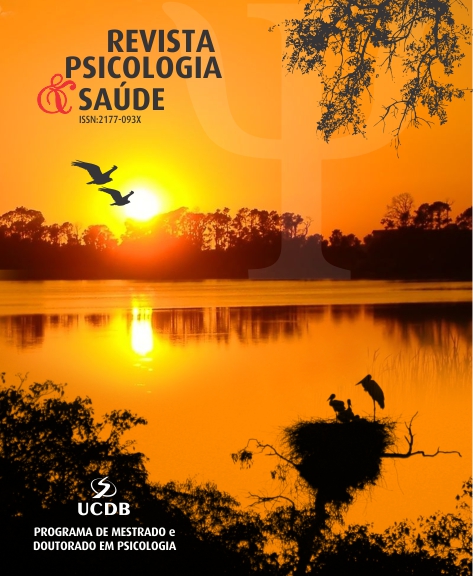Boredom and Procrastination as Modes of Res(ex)istance in the Contemporary
DOI:
https://doi.org/10.20435/pssa.v15i1.2428Keywords:
Postmodernity, Productivity, COVID-19, BoredomAbstract
In this theoretical study, we seek to reflect on the meaning of boredom and procrastination in the postmodern context, especially after the incidence of collective trauma resulting from the COVID-19 pandemic. In dialogue with the thought of Foucault, Heidegger, and Han, we analyze the protagonist of the homonymous Russian novel, Oblómov, to problematize the individual’s refusal to face the imperative of productivity, specifically within the transitioning social world of the late 19th century, marked by rapid urbanization and increasing industrialization. We point out that, after a century and a half, in the process of expansion of capitalism, the relationship of humanity with time and space has changed significantly. Time has become an enemy of the individual, an obstacle to be eliminated in a period dominated by globalization, which intensifies the flows of production and circulation of goods. We take the character Oblómov as an allegorical representation of the subject who feels crushed by time and tries to defend himself from the pressure to produce, to the limit of extracting power from his body, through boredom and infinite procrastination. Deprived of the means to manage his existence, Oblómov epitomizes the quintessential subject of contemporary capitalism: his individualistic strategy of resistance ultimately weakens his strength and drains his daily life of meaning.
References
Bridi, M. A. (2020). A pandemia Covid-19: Crise e deterioração do mercado de trabalho no Brasil. Estudos Avançados, 34, 141-165. https://doi.org/10.1590/s0103-4014.2020.34100.010 DOI: https://doi.org/10.1590/s0103-4014.2020.34100.010
Casanova, M. (2021). Tédio e tempo. Via Verita.
Figueiredo, R. (2020). Apresentação. In I. Gontcharóv, Oblómov (R. Figueiredo, trad.). Companhia das Letras. (Trabalho original publicado em 1859).
Fisher, M. (2020). Realismo capitalista: É mais fácil imaginar o fim do mundo do que o fim do capitalismo? (R. Gonçalves, J. Adeodato, & M. Silveira, trads.). Autonomia Literária.
Foucault, M. (1988). História da sexualidade. I: A vontade de saber (M. T. C. Albuquerque & J. A. G. Albuquerque, trads.). Graal.
Foucault, M. (1999). Vigiar e punir (R. Ramalhete, trad.). Vozes. (Trabalho original publicado em 1975).
Foucault, M. (2008). Segurança, território, população: Curso dado no Collège de France (1977-1978) (E. Brandão, trad.). Martins Fontes.
Gontcharóv, I. (2020). Oblómov (R. Figueiredo, trad.). Companhia das Letras. (Trabalho original publicado em 1859).
Han, B. C. (2015). Sociedade do cansaço (E. P. Giachini, trad.). Vozes.
Heidegger, M. (2006). Ser e tempo (M. S. Cavalcante, trad.). Vozes. (Trabalho original publicado em 1927).
Kafka, F. (2019). O processo (M. Penchel, trad.). Vozes. (Trabalho original publicado em 1925).
Lounsbery, A. (2011). The world on the back of a fish: Mobility, immobility, and economics in Oblómov. The Russian Review, 70, 43-64. https://doi.org/10.1111/j.1467-9434.2011.00595.x DOI: https://doi.org/10.1111/j.1467-9434.2011.00595.x
Matsuo, T., Kobayashi, D., Taki, F., Sakamoto, F., Uehara, Y., Mori, N., & Fukui, T. (2020). Prevalence of healthcare worker burnout during the coronavirus disease 2019 (COVID-19) pandemic in Japan. JAMA Network Open, 3(8), e2017271-e2017271. https://doi.org/10.1001/jamanetworkopen.2020.17271 DOI: https://doi.org/10.1001/jamanetworkopen.2020.17271
Mattar, C. (2020). Depressão: Doença ou fenômeno epocal? Via Verita.
Miskolci, R. (2005). Do desvio às diferenças. Teoria & Pesquisa, 47(1), 9-42. https://doi.org/10.4322/tp.v1i47.43
Oliveira, W. A., Oliveira-Cardoso, E. A., Silva, J. L., & Santos, M. A. (2020a). Impactos psicológicos e ocupacionais das sucessivas ondas recentes de pandemias em profissionais da saúde: Revisão integrativa e lições aprendidas. Estudos de Psicologia, 37, e200066. https://doi.org/10.1590/1982-0275202037e200066 DOI: https://doi.org/10.1590/1982-0275202037e200066
Oliveira, W. A., Silva, J. L., Andrade, A. L. M., Micheli, D., Fernández, J. E. R., Dellazzana-Zanon, L. L., Silva, M. A. I., & Santos, M. A. (2020b). Adolescence in times of pandemic: integrating consensus into a concept map. Estudos de Psicologia, 25(2), 133-143. https://doi.org/10.22491/1678-4669.20200014 DOI: https://doi.org/10.22491/1678-4669.20200014
Santos, M. A., Oliveira, W. A., & Oliveira-Cardoso, É. A. (2020). Inconfidências de abril: impacto do isolamento social na comunidade trans em tempos de pandemia de COVID-19. Psicologia & Sociedade, 32, e020018. https://doi.org/10.1590/1807-0310/2020v32240339 DOI: https://doi.org/10.1590/1807-0310/2020v32240339
Thiele, L. P. (1997). Postmodernity and the routinization of novelty: Heidegger on boredom and technology. Palgrave Macmillan Journals, 29(4), 489-517. https://www.journals.uchicago.edu/doi/abs/10.2307/3235265 DOI: https://doi.org/10.2307/3235265
Vargas Rubilar, N., & Oros, L. B. (2021). Stress and burnout in teachers during times of pandemic. Frontiers in Psychology, 12(75), 756007. https://doi.org/10.3389/fpsyg.2021.756007 DOI: https://doi.org/10.3389/fpsyg.2021.756007
World Health Organization. (2020). WHO Director-General’s opening remarks at the media briefing on COVID-19 - 13 April 2020. https://www.who.int/director-general/speeches/detail/who-director-general-s-opening-remarks-at-the-media-briefing-on-covid-19--13-april-2020
Published
How to Cite
Issue
Section
License

This work is licensed under a Creative Commons Attribution 4.0 International License.
The articles published on journal Psicologia e Saúde holds the copyrights of all texts published by it. Due to that, there is a demand for a letter of copyright cession (see Appreciation). The full reproduction of any article of this Journal in other publications, by any means, requires a written authorization of the Editorial Board. Partial reproductions of articles (abstracts, more than 500 words of text, tables, pictures and other illustrations, sound files) should have the written permission of the Editorial Board and the Authors.












